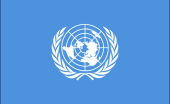Molly Minturn - My family is heartbroken to share that my father died in surgery on Monday, Feb. 10. It…
The Case for Good Enough Global Governance
Written by Diana Thebaud Nicholson // January 27, 2014 // Government & Governance // Comments Off on The Case for Good Enough Global Governance
 The Unruled World
The Unruled World
The Case for Good Enough Global Governance
Foreign Affairs
January|February 2014
Global disorder is here to stay, so the challenge is to make it work as well as possible.
While campaigning for president in 2008, Barack Obama pledged to renovate the dilapidated multilateral edifice the United States had erected after World War II. He lionized the generation of Franklin Roosevelt, Harry Truman, and George Marshall for creating the United Nations, the Bretton Woods institutions, and NATO. Their genius, he said, was to recognize that “instead of constraining our power, these institutions magnified it.” But the aging pillars of the postwar order were creaking and crumbling, Obama suggested, and so “to keep pace with the fast-moving threats we face,” the world needed a new era of global institution building.
Five years into Obama’s presidency, little progress has been made on that front, and few still expect it. Formal multilateral institutions continue to muddle along, holding their meetings and issuing their reports and taking some minor stabs at improving transnational problems at the margins. Yet despite the Obama administration’s avowed ambition to integrate rising powers as full partners, there has been no movement to reform the composition of the UN Security Council to reflect new geopolitical realities. Meanwhile, the World Trade Organization (WTO) is comatose, NATO struggles to find its strategic purpose, and the International Energy Agency courts obsolescence by omitting China and India as members.
The demand for international cooperation has not diminished. In fact, it is greater than ever, thanks to deepening economic interdependence, worsening environmental degradation, proliferating transnational threats, and accelerating technological change. But effective multilateral responses are increasingly occurring outside formal institutions, as frustrated actors turn to more convenient, ad hoc venues. The relative importance of legal treaties and universal bodies such as the UN is declining, as the United States and other states rely more on regional organizations, “minilateral” cooperation among relevant states, codes of conduct, and partnerships with nongovernmental actors. And these trends are only going to continue. The future will see not the renovation or the construction of a glistening new international architecture but rather the continued spread of an unattractive but adaptable multilateral sprawl that delivers a partial measure of international cooperation through a welter of informal arrangements and piecemeal approaches.
“Global governance” is a slippery term. It refers not to world government (which nobody expects or wants anymore) but to something more practical: the collective effort by sovereign states, international organizations, and other nonstate actors to address common challenges and seize opportunities that transcend national frontiers. In domestic politics, governance is straightforward. It is provided by actual governments — formal, hierarchical institutions with the authority to establish and enforce binding rules. Governance in the international or transnational sphere, however, is more complex and ambiguous. There is some hierarchy — such as the special powers vested in the permanent members of the UN Security Council — but international politics remain anarchic, with the system composed of independent sovereign units that recognize no higher authority.
Global cooperation is increasingly occurring outside formal institutions, as frustrated actors turn to more ad hoc venues.
Cooperation under such anarchy is certainly possible. National governments often work together to establish common standards of behavior in spheres such as trade or security, embedding norms and rules in international institutions charged with providing global goods or mitigating global bads. But most cooperative multilateral bodies, even those binding under international law, lack real power to enforce compliance with collective decisions. What passes for governance is thus an ungainly patchwork of formal and informal institutions.
Alongside long-standing universal membership bodies, there are various regional institutions, multilateral alliances and security groups, standing consultative mechanisms, self-selecting clubs, ad hoc coalitions, issue-specific arrangements, transnational professional networks, technical standard-setting bodies, global action networks, and more. States are still the dominant actors, but nonstate actors increasingly help shape the global agenda, define new rules, and monitor compliance with international obligations.
The clutter is unsightly and unwieldy, but it has some advantages, as well. No single multilateral body could handle all the world’s complex transnational problems, let alone do so effectively or nimbly. And the plurality of institutions and forums is not always dysfunctional, because it can offer states the chance to act relatively deftly and flexibly in responding to new challenges. But regardless of what one thinks of the current global disorder, it is clearly here to stay, and so the challenge is to make it work as well as possible.
BIG GAME
The centerpiece of contemporary global governance remains the UN, and the core of the UN system remains the Security Council — a standing committee including the most powerful countries in the world. In theory, the Security Council could serve as a venue for coordinating international responses to the world’s most important threats to global order. In practice, however, it regularly disappoints — because the five permanent members (the United States, the United Kingdom, France, Russia, and China) often disagree and because their veto power allows the disagreements to block action. This has been true since the UN’s inception, of course, but the Security Council’s significance has diminished in recent decades as its composition has failed to track shifts in global power.
The dysfunction of the UN extends well beyond the Security Council, of course. Despite modest management reforms, the UN Secretariat and many UN agencies remain opaque, and their budgeting and operations are hamstrung by outdated personnel policies that encourage cronyism. Within the UN General Assembly, meanwhile, irresponsible actors who play to the galleries often dominate debates, and too many resolutions reflect encrusted regional and ideological blocs that somehow persist long after their sell-by date.
With the Security Council dominated by the old guard, rising powers have begun eyeing possible alternative venues for achieving influence and expressing their concerns. Shifts in global power have always ultimately produced shifts in the institutional superstructure, but what is distinctive today is the simultaneous emergence of multiple power centers with regional and potentially global aspirations. As the United States courts relative decline and Europe and Japan stagnate, China, India, Brazil, Russia, Turkey, Indonesia, and others are flexing their muscles, expanding their regional influence and insisting on greater voice within multilateral institutions.
Despite these geopolitical shifts, however, no coherent alternative to today’s Western order has emerged. This is true even among the much-hyped BRICS: Brazil, Russia, India, China, and, since 2012, South Africa. These countries have always lacked a common vision, but at least initially, they shared a confidence born of economic dynamism and resentment over a global economy they perceived as stacked to favor the West. In recent years, the BRICS have staked out a few common positions. They all embrace traditional conceptions of state sovereignty and resist heavy-handed Western intervention. Their summit communiqués condemn the dollar’s privileges as the world’s main reserve currency and insist on accelerated governance reforms within the international financial institutions. The BRICS have also agreed to create a full-fledged BRICS bank to provide development aid to countries and for issues the bloc defines as priorities, without the conditionality imposed by Western donors.
Global disorder is here to stay, so the challenge is to make it work as well as possible. More



